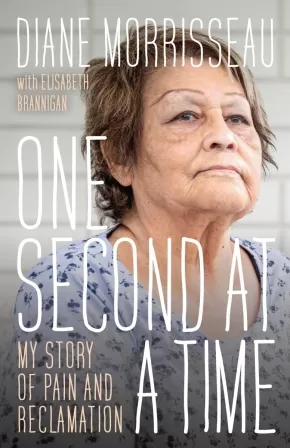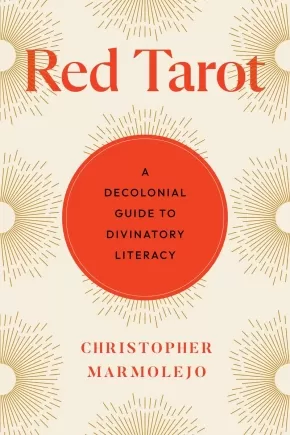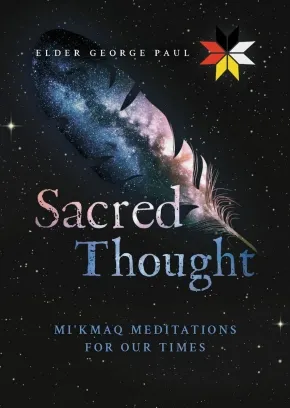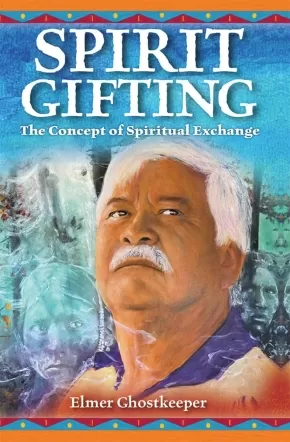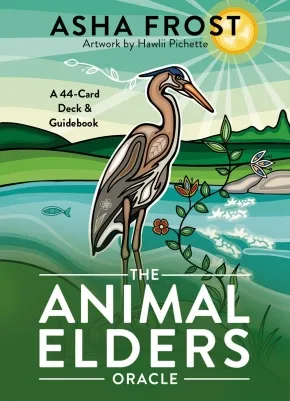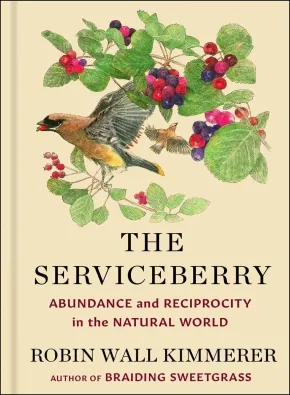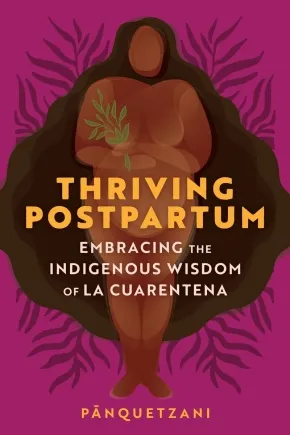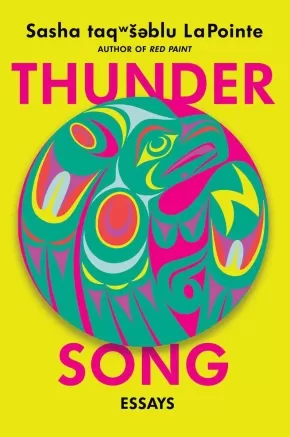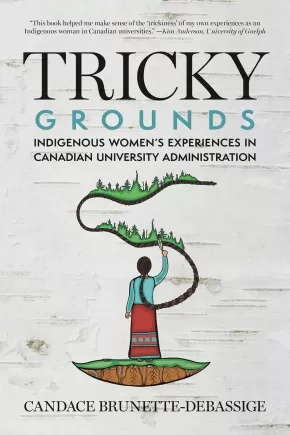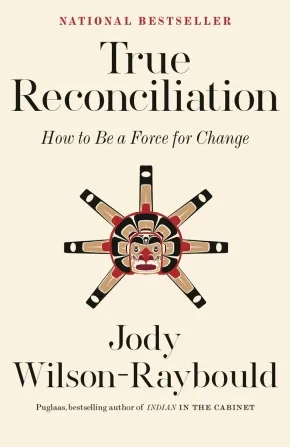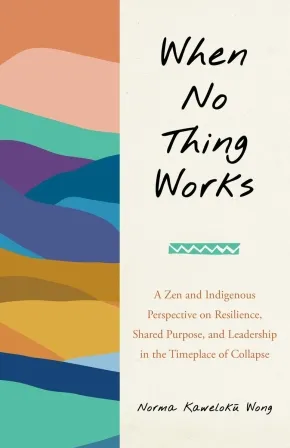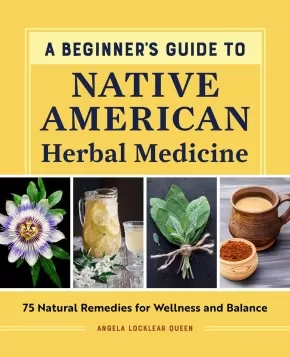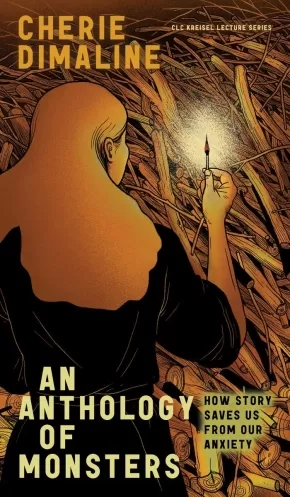
Healing and Wellness
46
-
60
of
303 Results;
Sort By
Go To
of 21
One Second at a Time: My Story of Pain and Reclamation
$24.95
Format:
Paperback
Text Content Territories:
Indigenous Canadian; First Nations; Anishinaabeg; Sagkeeng;
Reading Level: N/A
ISBN / Barcode: 9780774880978
Synopsis:
Synopsis:
Bullied and abused at the Fort Alexander Indian Residential day school, Diane Morrisseau fought back and left school at the age of fifteen. Despite her strength, a childhood of trauma and abuse led her into the arms of Edgar Olson, and by sixteen, the young Ojibway-Anishinabe woman had given birth to her first child and married the man who would become her tormentor for the next eighteen years.
For almost two decades, Diane Morrisseau was chained to a brutal husband who abused not only her, but their children. By threatening Diane with their death and hers should she ever try to leave, he ensured that she would continue to endure his cruelty. Notoriously violent, her abuser was aided and abetted by the systems of colonialism that failed to protect Diane during her childhood. Edgar was able to keep Diane and her children trapped in a cycle of violence for years, without being held accountable by law or society.
Despite this, Diane found the strength to walk away. This book is the story of how she did so, and how she rebuilt a life beyond her abuser. Through Al-Anon, Anishinabe traditional healing ceremonies, counselling, and care for others, Diane found a new path illuminated by compassion and purpose.
Diane Morrisseau recounts her traumatic history with one aim: to help other victims of violence know they are not alone, and that escape is possible. The author’s entire career, and this book, testify to her desire to extend to others the hope that eluded her in the depths of her desperate circumstances.
Devastatingly frank about the abuse she suffered, the mothering her children missed because of it, and the systems that allowed it all to happen, Diane today has reconciled the past with a present where she continues to live out the values that matter to her most.
All royalties from sales of this book will be donated to Archway Community Services.
The story of an Ojibway-Anishinabe woman who, against incredible odds, rescued herself and her children from a life of brutal beatings, sexual servitude, and almost unimaginable hardship.
Reviews
"Selected as one of the most anticipated feminist books of 2024."— Ms. Magazine
"A courageous and harrowing story. Morrisseau uses her painful personal journey to frame the horrific history of residential schools. Evocative and illuminating."
— Angela Sterritt, author of Unbroken: My Fight for Survival, Hope, and Justice for Indigenous Women and Girls
"I is, in many ways, a difficult story to read – but it is one that needs to be told. Readers will learn about a courageous woman and the circumstances that enabled an abusive relationship, and hear her message for how to recognize the situation and take steps toward a better life."— Don McCaskill, co-author of In the Words of the Elders
"A fervent call to action, an impassioned plea for compassion and empathy, and a formidable rallying cry that seeks to instigate transformation [… One Second at a Time] serves as a bridge, seeking to connect human souls through shared understanding and collective responsibility."— From the foreword by Marlyn Bennett
"Raw and brutally honest. Morrisseau bravely shares the details of her life with a violent man. Validating and inspiring, her story affirms the complicated healing journey of abuse survivors. It’s a must read for anyone working in the field of gender-based violence."— Kendra Nixon, director of Research and Education for Solutions to Violence and Abuse (RESOLVE)
"Diane Morrisseau has taken us into her confidence with her story, allowing us to truly understand as a society how the relationship between Indigenous people and settlers has created immense hardships for Indigenous people, families, and communities."— Marion Maar, professor, Northern Ontario School of Medicine University
Educator Information
All royalties from sales of this book will be donated to Archway Community Services.
Table of Contents
Foreword: A Tapestry of Truths / Marlyn Bennett
Preface
Prologue
A Note on the Text
1 A Perfect Home
2 Day School
3 Posting of the Bands
4 Mrs. Olson
5 Holes in the Walls
6 Breakdown
7 Scars
8 Breaking Free
9 Seeing the Trees
10 Freedom at Last
Acknowledgments
About the Authors
Additional Information
198 pages | 5.50" x 8.50" | Paperback
Red Tarot: A Decolonial Guide to Divinatory Literacy
$34.95
Format:
Paperback
Text Content Territories:
Indigenous American;
Reading Level: N/A
ISBN / Barcode: 9781623178475
Synopsis:
Synopsis:
Designed to be used with any deck, Red Tarot is a radical praxis and decolonized oracle that moves beyond self-help and divination to reclaim tarot for liberation, self-determination, and collective healing.
Red Tarot speaks to anyone othered for their identity or ways of being or thinking—LGBTQIA2S+ and BIPOC folks in particular—presenting the tarot as a radical epistemology that shifts the authority of knowing into the hands of the people themselves.
Author Christopher Marmolejo frames literacy as key to liberation, and explores an understanding of tarot as critical literacy. They show how the cards can be read to subvert the dynamics of white supremacist-capitalist-imperialist-patriarchy, weaving historical context and spiritual practice into a comprehensive overview of tarot.
Situating tarot imagery within cosmologies outside the Hellenistic frame—Death as interpreted through the lens of Hindu goddess Chhinnamasta, the High Priestess through Aztec goddess Coyolxauhqui—Marmolejo’s Red Tarot is a profound act of native reclamation and liberation. Each card’s interpretation is further bolstered by the teachings of Toni Morrison, bell hooks, Paulo Freire, José Esteban Muñoz, and others, in an offering that integrates intersectional wisdom with the author’s divination practice—and reveals tarot as an essential language for liberation.
Reviews
“Red Tarot passionately reindigenizes the symbolism of each tarot card and demonstrates the importance of this reclamation. Along with illuminating bold interpretations of the tarot, it pulls the reader into each tarot narrative in a brilliant and poetic manner. I loved this book!”—Erika Buenaflor, MA, JD, author of Cleansing Rites of Curanderismo and Veneration Rites of Curanderismo
“Red Tarot is a volume that truly, as in its own words, readies its reader to come as ‘part prophet, part poet, part political participant.’ This is a generous book. Marmolejo has done something truly wonderful here. They have made a book that makes it possible for you to engage with the future in the best way possible which is with the feeling of blowing your brain hole open. Anyone who hungers for more possibility when faced with the prospect of reading the future should keep Red Tarot with them. I know that it will be very dear to me. Red Tarot shows you how to find a sense of almost unnerving freedom in the future. This book treats reading as a medicine.”—Alice Sparkly Kat, author of Postcolonial Astrology
“After a pandemic’s collective deadness, I’m looking for resources that help us all claim collective aliveness. You’re holding one of the finest contributions to help find a portal to Eros; the rapture of aliveness, and the transcendent support of red reading. Christopher Marmolejo’s Red Tarot is an invaluable, extensively researched tool that helps you remember the language, symbols, and fields of somatic and intuitive knowledge acquisition. It’s a highly integrative work; successfully, accessibly merging the best of Christopher’s teachers in the decolonial and divinatory fields. Red Tarot achieves the work’s goal of Indigenous reclamation, reimagining, and regeneration in this pivotal time.”—Colin Bedell, astrologer and founder of QueerCosmos
Additional Information
448 pages | 5.98" x 8.96" | Paperback
Sacred Thought: Mi'kmaq Meditations for our Times
$24.95
Format:
Paperback
Text Content Territories:
Indigenous Canadian; First Nations; Mi'kmaq (Mi'gmaq);
Reading Level: N/A
ISBN / Barcode: 9781998129256
Synopsis:
Synopsis:
In this philosophical exploration, Mi’kmaq Elder George Paul shares his traditional knowledge with those on a quest to better understand themselves and the world around them. Practiced and maintained by North American Indigenous tribes since time immemorial, this search for spirituality is informed by traditional knowledge, oral tradition and the use of symbols relating to our environment and to our universe. From the ceremonial to the sacred, George Paul meditates on the Indigenous legends, stories and designs of his ancient ancestors that offer new prospects to a modern population all across Turtle Island who are hungry to look inward.
With creation stories, buffalo sage and tapping into our spirit guides, Sacred Thought: Mi’kmaq Meditations for our Times is a book for those who are looking for balance and peace of mind in the chaos and confusion that govern the world today.
Reviews
“Elder George Paul, has dedicated more than four decades of his life to supporting the revitalization of our nation’s culture. In many ways, his tireless efforts have led a resurgence in our culture’s beautiful tapestry of language, spirit, and tradition — a colourful Mi'kmaw tapestry made all the more powerful when celebrated through the performance arts — and in particular, as we come together as a community to join in traditional song and dance.” - Julie Pellissier-Lush, Atlantic Books
"Elder George Paul has made significant contributions to safeguarding the cultural heritage of the Mi'kmaq. Through songs, stories and other artistic and intellectual expressions, he has worked tirelessly for decades to help our communities reclaim, revitalize and maintain traditional knowledge and practices passed down by our ancestors. This commitment shines in his latest book, Sacred Thought, which explores core aspects of our spirituality. The legacy of Elder Paul ensures that our distinct ways of knowing, being and doing will remain vibrant and relevant, and will continue to be deeply felt throughout Mi'kmaki and beyond." — The Honourable Brian Francis, Senator for Epekwitk (Prince Edward Island), Chair of the Standing Senate Committee on Indigenous Peoples and former Chief of Abegweit First Nation
"Elder George Paul, has dedicated more than four decades of his life to supporting the revitalization of our nation's culture. In many ways, his tireless efforts have led a resurgence in our culture's beautiful tapestry of language, spirit, and tradition - a colourful Mi'kmaw tapestry made all the more powerful when celebrated through the performance arts - and in particular, as we come together as a community to join in traditional song and dance." — Julie Pellissier-Lush, Atlantic Books
Additional Information
120 pages | 5.00" x 7.40" | Paperback
Spirit Gifting: The Concept of Spiritual Exchange
$14.95
Format:
Paperback
Text Content Territories:
Indigenous Canadian; First Nations; Cree (Nehiyawak); Métis;
Reading Level: N/A
ISBN / Barcode: 9781990321313
Synopsis:
Synopsis:
Respected Elder Elmer Ghostkeeper takes us on a journey of rediscovery where we gain a new perspective on the world we take for granted. Ghostkeeper tells the story of his attempt to reclaim and reawaken to his Indigenous worldview on his own terms with his traditional knowledge intact.
As he returns to his roots, he shares the series of natural signs that have guided his family through time and shaped their ceremonial activities in living with the land rather than off the land. He reveals how to follow the natural ebb and flow of nature with its spiritual exchange of precise and well-thought-out duties and giftings. As a fluent Cree speaker, he names the Cree words for the 12 moons of the year, setting out these traditional duties and preparations. His writing is a breath of fresh reality and air—air free of exhaust and spiritual exhaustion—air filled with spiritual inspiration.
Additional Information
128 pages | 5.25" x 8.25" | Paperback
The Animal Elders Oracle: A 44-Card Deck & Guidebook of Indigenous Wisdom & Healing Medicine
$25.99
Artists:
Text Content Territories:
Indigenous Canadian; First Nations; Anishinaabeg; Ojibway;
Reading Level: N/A
ISBN / Barcode: 9781401978181
Synopsis:
Synopsis:
Tap into guidance from the animal spirit realm and connect to ancestral wisdom with this transformative 44-card deck and guidebook from Indigenous Medicine Woman and author of You Are the Medicine and The Sacred Medicine Oracle, Asha Frost.
Everything is interconnected. All of creation carries a spirit. Indigenous people have always had a sacred relationship with animals and treated them as honored elders. Animal beings in the spirit realm are part of our spiritual support team as allies and medicine keepers, ready to help, waiting to remind you of your humanity and deep connection to the natural world.
With 44 Elder Animals depicted in a richly detailed traditional Ojibway art style, each card carries its own unique medicine. This deck offers meaningful insights and messages to guide you on your path both from the universe and in the voice of an animal spirit guide from the lands of the Ojibway people—from Elder Artic Hare to Elder Wolf. Whether you're seeking clarity, healing, or a deeper connection to your ancestral lineage, these cards provide a bridge to the spirit world.
Use this deck your rituals and ceremonies, do readings with it for your clients and friends, and share it with your communities. As the medicine ripples out, hold Indigenous people in your heart and honor how their history continues to impact your current reality.
Additional Information
128 pages | 3.50" x 5.00" | Card Deck & Guidebook
The Medicine Chest: A Physician's Journey Towards Reconciliation
$29.95
Format:
Paperback
Text Content Territories:
Indigenous Canadian;
Reading Level: N/A
ISBN / Barcode: 9780889779730
Synopsis:
Synopsis:
An examination of the barriers facing Indigenous people within the healthcare system from the perspective of an empathetic settler physician
After leaving her medical practice in Pennsylvania in 2011, Jarol Boan returned to her childhood home in Saskatchewan, Canada to practice medicine. There she found a healthcare system struggling with preventable chronic diseases and institutional racism. Shocked by the high rate of preventable diseases in her patients, Boan realized that a paternalistic deficit model does not support Indigenous communities. Through working to provide medical services in Indigenous communities and learning firsthand from her Indigenous patients, Boan embarked on a road to enlightenment and reconciliation.
In The Medicine Chest, Boan exposes the healthcare disparities in a country that prides itself on an equitable healthcare system and examines the devastating effects of diabetes, the myth of “the drunken Indian,” the inner workings of hospitals, Missing and Murdered Indigenous Women and Girls, epidemics on reserves, and residential school trauma. Exploring the intersectionality of common diseases and social determinants of health gained from her experience of caring for Indigenous patients, Boan weaves historical data, comments on health policy, and jurisdictional gaps into the narrative while investigating how Canada’s healthcare system is failing those most in need.
Reviews
“A heart-breaking, heart-warming story of damage and caring. I couldn’t stop reading.” —Gary Geddes, Medicine Unbundled
“Canada’s national sense of self is rooted in the myth of a fair, open, and public health care system. But all too often the medical system is a nightmare journey for Indigenous patients and their families. The Medicine Chest is a frontline diary of the struggle to address the inequities and colonial legacy, and the urgency to find a new way to healing and reconciliation.” —Charlie Angus, Cobalt and Children of the Broken Treaty
“Dr. Boan confronts the traps and assumptions she unearths, both in herself and in the health care system, as she journeys, and sometimes stumbles, along the messy path toward self-awareness and reconciliation.” —Karen Palmer, Policy Advisor to Canadian Doctors for Medicare
“An important effort at reaching out and tackling the challenges presented by Indigenous health disparities and jurisdictional obstacles.” —Blair Stonechild, First Nations University of Canada
Educator Information
Table of Contents
Acknowledgements
Map
Introduction
Willow Medicine
Hollywood in Regina
A Field on the Prairie
A Middle Ground
Two-Eyed Seeing
A Crime to Refuse Treatment
As Long as That Sun Shines
Strangers in the Touchwood Hills
An Expanding Circle
Red Dress Day
Michael’s Tears
An HIV Epidemic
A Clinic in the Parklands
Derrick
The Trade in Alcohol
Maybe I Will, Maybe I Won’t
Sweetgrass and Ceremony
The Dialysis Shuttle
Anxiety
Food on the Reserve
The Spirit Journey
Ten to Fifteen Percent
The Serpent
The Road to Reconciliation
Seven Grandfather Teachings from the Anishinaabe
Postscript
TRC Calls to Action addressed in The Medicine Chest
Index
About the Author
Additional Information
320 pages | 6.00" x 9.00" | Paperback
The Serviceberry: Abundance and Reciprocity in the Natural World
$25.00
Format:
Hardcover
Text Content Territories:
Indigenous American;
ISBN / Barcode: 9781668072240
Synopsis:
Synopsis:
From the #1 New York Times bestselling author of Braiding Sweetgrass, a bold and inspiring vision for how to orient our lives around gratitude, reciprocity, and community, based on the lessons of the natural world.
As Indigenous scientist and author of Braiding Sweetgrass Robin Wall Kimmerer harvests serviceberries alongside the birds, she considers the ethic of reciprocity that lies at the heart of the gift economy. How, she asks, can we learn from Indigenous wisdom and the plant world to reimagine what we value most? Our economy is rooted in scarcity, competition, and the hoarding of resources, and we have surrendered our values to a system that actively harms what we love. Meanwhile, the serviceberry’s relationship with the natural world is an embodiment of reciprocity, interconnectedness, and gratitude. The tree distributes its wealth—its abundance of sweet, juicy berries—to meet the needs of its natural community. And this distribution insures its own survival. As Kimmerer explains, “Serviceberries show us another model, one based upon reciprocity, where wealth comes from the quality of your relationships, not from the illusion of self-sufficiency.”
As Elizabeth Gilbert writes, Robin Wall Kimmerer is “a great teacher, and her words are a hymn of love to the world.” The Serviceberry is an antidote to the broken relationships and misguided goals of our times, and a reminder that “hoarding won’t save us, all flourishing is mutual.”
Reviews
“Robin Wall Kimmerer is writer of rare grace. She writes about the natural world from a place of such abundant passion that one can never quite see the world the same way after having seen it through Kimmerer’s eyes. In Braiding Sweetgrass, she takes us on a journey that is every bit as mythic as it is scientific, as sacred as it is historical, as clever as it is wise. She is a great teacher, and her words are a hymn of love to the world.” —Elizabeth Gilbert
“Robin Wall Kimmerer has written an extraordinary book, showing how the factual, objective approach of science can be enriched by the ancient knowledge of the indigenous people. It is the way she captures beauty that I love the most—the images of giant cedars and wild strawberries, a forest in the rain and a meadow of fragrant sweetgrass will stay with you long after you read the last page.” —Jane Goodall
“I give daily thanks for Robin Wall Kimmerer for being a font of endless knowledge, both mental and spiritual.”—Richard Powers, The New York Times
“Robin Wall Kimmerer opens a sense of wonder and humility for the intelligence in all kinds of life we are used to naming and imagining as inanimate.” —Krista Tippett, host of On Being
Additional Information
112 pages | 5.00" x 7.00" | Hardcover
Thriving Postpartum: Embracing the Indigenous Wisdom of La Cuarentena
$26.99
Text Content Territories:
Indigenous Central American; Indigenous Peoples in Mexico;
Reading Level: N/A
ISBN / Barcode: 9781649631756
Synopsis:
Synopsis:
From ancestral healing expert Pānquetzani comes traditional Indigenous wisdom for helping women thrive in, rather than merely survive, the postpartum experience.
Though we now have more resources for ancestral birthing and self-care practices than ever, postpartum care is still largely stuck in an outdated, patriarchal paradigm that fails to serve mothers and newborns. “Slowing down, recovering fully, and giving your baby the best start isn’t a privilege—it’s a basic human need,” says Pānquetzani, a leading expert in Indigenous health care for women. In Thriving Postpartum, she shares the sacred ritual of la cuarentena (or quarantine) that honors, nurtures, and empowers a birthing person’s transition into their new life. Here, you’ll find guidance on:
• Herbal recipes and 25 yerbas for postpartum healing
• Newborn and immediate postpartum care
• Sacred foods in la cuarentena
• Bodywork
• Your emotional body in la cuarentena
• Sex, pleasure, and intimacy postpartum
Pānquetzani teaches this 40-day journey as a spiritual rite of passage, one that has endured colonization and supported women in Mesoamerican, Mexican, and Central American communities. She shares everything you’ll need—from ancestral recipes for lactation and replenishing, to prayers and somatic practices for physical, emotional, and sexual recovery. Through traditional stories and practical guidance, she also helps you engage your support network, become your own best advocate, and lay a healthy foundation for the years to come.
“This wisdom has come from my familia and is a direct inheritance from our collective body of knowledge,” says Pānquetzani. Imparted with love, tenderness, and respect, here is an invitation to participate in a rich tradition that celebrates birth and motherhood as sacred acts of creation.
Reviews
“Thriving Postpartum is imperative to the ancestral healing of all birthing people and their families. Prioritizing Indigenous practices impacts more current social injustices than we even realize—everything from sustainability to the protection and equality of Black and Brown bodies. Pānquetzani’s book is saving lives, one generation at a time.” —Kehlani, activist, home birther, and award-winning singer and songwriter
“This much-needed book brings to light the important and historical knowledge of Mexican Indigenous herbal medicine for women during their postpartum time. Pānquetzani provides a rich, practical, and highly effective guide on how to care for yourself with traditional herbs, body practices, and sacred foods and recipes from her years of experience working with women and expanding on the wisdom of her abuelas. She also lovingly and unflinchingly guides BIPOC new mothers through the variety of emotions that surface during this transition into motherhood to help navigate ancestral and familial wounds, systemic oppression, and relationships and sexuality with a focus on nervous system support and regulation practices. Reading this book will make you feel like Pānquetzani is your doula guiding you along your postpartum journey, reconnecting and empowering you with your sacred heritage. This book is a reclamation and a healing for BIPOC women and a sacred gift to future generations.” —Alisa Vitti, functional nutrition and women’s hormone expert, author of WomanCode and In the FLO, creator of the Cycle Syncing® Method, and founder of FLOliving.com
Additional Information
256 pages | 6.00" x 9.00" | 20 b&w photos | Paperback
Thunder Song: Essays (HC) (3 in Stock)
$35.00
Format:
Hardcover
Text Content Territories:
Indigenous American; Native American; Salish; Coast Salish; Nooksack; Upper Skagit;
Reading Level: N/A
ISBN / Barcode: 9781640096356
Synopsis:
Synopsis:
The author of the award-winning memoir Red Paint returns with a razor-sharp, clear-eyed collection of essays on what it means to be a proudly queer indigenous woman in the United States today
Drawing on a rich family archive as well as the anthropological work of her late great-grandmother, Sasha taqʷšəblu LaPointe explores themes ranging from indigenous identity and stereotypes to cultural displacement and environmental degradation to understand what our experiences teach us about the power of community, commitment, and conscientious honesty.
Unapologetically punk, the essays in Thunder Song segue from the miraculous to the mundane, from the spiritual to the physical, as they examine the role of art—in particular music—and community in helping a new generation of indigenous people claim the strength of their heritage while defining their own path in the contemporary world.
Reviews
"Blending beautiful family history with her own personal memories, LaPointe’s writing is a ballad against amnesia, and a call to action for healing, for decolonization, for hope." —Lauren Puckett-Pope, Elle
“It’s a provocative and wonderfully crafted collection exploring cultural legacies, colonialism, and finding your own path forward.” —Susie Dumond, BookRiot
"Lyrical prose elevates LaPointe’s incisive and heartfelt personal reflections. The result is a beautifully rendered snapshot of contemporary American Indigenous life." —Publishers Weekly
"These passionate essays, adamant in their activist pleas, reflect hard-won wisdom, as well as the representative significance of the author’s experiences. Probing and poignant reflections on Indigenous America." —Kirkus Reviews
“Sasha taqʷšəblu LaPointe’s essays in Thunder Song are loud, bold, and startlingly majestic. None of Sasha’s examinations fail to find truth: page after page, the intersections of family, heritage, history, and music build to countless transcendental moments for the reader, which is not only the magic of this book but a clear testament to Sasha’s immense storytelling power. She is a major talent. Thunder Song is masterful and wise, and it will not be forgotten.” ––Morgan Talty, National Bestselling author of Night of the Living Rez
Additional Information
256 pages | 5.36" x 8.30" | Hardcover
Tricky Grounds: Indigenous Women's Experiences in Canadian University Administration
$34.95
Format:
Paperback
Text Content Territories:
Indigenous Canadian; First Nations; Cree (Nehiyawak); Swampy Cree ; Mushkegowuk;
Reading Level: N/A
ISBN / Barcode: 9780889779778
Synopsis:
Synopsis:
Breaks the deafening silence of Indigenous women’s voices in academic leadership positions.
Since the 2015 release of the report on the Truth and Reconciliation Commission of Canada, new Indigenous policies have been enacted in universities and a variety of interconnecting Indigenous senior administrative roles have been created. Many of these newly created roles have been filled by Indigenous women. But what does it mean for Indigenous women to be recruited to Indigenize Western institutions that have not undergone introspective, structural change?
Informed by her own experiences and the stories of other Indigenous women working in senior administrative roles in Canadian universities, Candace Brunette-Debassige explores the triple-binding position Indigenous women often find themselves trapped in when trying to implement reconciliation in institutions that remain colonial, Eurocentric, and male-dominated. The author considers too the gendered, emotional labour Indigenous women are tasked with when universities rush to Indigenize without the necessary preparatory work of decolonization.
Drawing on an Indigenous feminist decolonial theoretical lens and positioning Indigenous story as theory, Brunette-Debassige illustrates how Indigenous women can and do preserve and enact their agency through resistance, and help lead deeper transformative changes in Canadian universities. Ultimately, her work provides a model for how reconciliation and Indigenization can be done at an institutional level.
Reviews
“This book helped me make sense of the ‘trickiness’ of my own experiences as an Indigenous woman in Canadian universities.” —Kim Anderson, University of Guelph
Additional Information
320 pages | 6.00" x 9.00" | Paperback
True Reconciliation: How to Be a Force for Change (PB)
$22.00
Format:
Paperback
Text Content Territories:
Indigenous Canadian;
Reading Level: N/A
ISBN / Barcode: 9780771004407
Synopsis:
Synopsis:
There is one question Canadians have asked Jody Wilson-Raybould more than any other: What can I do to help advance reconciliation? It is clear that people from all over the country want to take concrete and tangible action that will make real change. We just need to know how to get started. This book provides that next step. For Wilson-Raybould, what individuals and organizations need to do to advance true reconciliation is self-evident, accessible, and achievable. True Reconciliation is broken down into three core practices—Learn, Understand, and Act—that can be applied by individuals, communities, organizations, and governments.
The practices are based not only on the historical and contemporary experience of Indigenous peoples in their relentless efforts to effect transformative change and decolonization, but also on the deep understanding and expertise about what has been effective in the past, what we are doing right, and wrong, today, and what our collective future requires. Fundamental to a shared way of thinking is an understanding of the Indigenous experience throughout the story of Canada. In a manner that reflects how work is done in the Big House, True Reconciliation features an “oral” history of these lands, told through Indigenous and non-Indigenous voices from our past and present.
The ultimate and attainable goal of True Reconciliation is to break down the silos we’ve created that prevent meaningful change, to be empowered to increasingly act as “inbetweeners,” and to take full advantage of this moment in our history to positively transform the country into a place we can all be proud of.
Additional Information
352 pages | 5.17" x 7.99" | Paperback
When No Thing Works: A Zen and Indigenous Perspective on Resilience, Shared Purpose, and Leadership in the Timeplace of Collapse
$24.95
Format:
Paperback
Text Content Territories:
Indigenous Polynesian; Indigenous Hawaiian;
Reading Level: N/A
ISBN / Barcode: 9798889840992
Synopsis:
Synopsis:
Spiritual and community lessons for embracing collective care, co-creating sustainable worlds, and responsibly meeting uncertain futures—a Zen and Indigenous take on building better, more balanced ways of being
Talking story, weaving poetry, and offering wisdom at the intersections of strategy, politics, and spiritual activism, When No Thing Works is a visionary guide to co-creating new worlds from one in crisis. It asks into the ways we can live well and maintain our wholeness in an era of collective acceleration: the swiftly moving current, fed and shaped by human actions, that sweeps us toward ever uncertain futures. Grounded in Zen Buddhism, interconnection, and decades of community activism, When No Thing Works explores questions like:
- As we stand at a threshold of collective change, what leaps must we make?
- How can we push through discord and polarization and meet these critical changepoints collectively?
- What practices, strategies, and spiritualities can align to vision a sustainable future for our communities and descendants?
- How can we step out of urgency to tend to our crises with wisdom, intention, and care?
With wise and witty prose that wanders and turns, guides and reveals, Zen master and Indigenous Hawaiian leader Rōshi Norma Wong’s meditation holds our collective moment with gravity and tender care. She asks us to not only imagine but to live into a story beyond crisis and collapse—one that expands to meet our dreams of what (we hope) comes next, while facing with clarity and grace our here and now in the world we share today.
Reviews
“Norma Ryuko Kawelokū Wong explores the essence of a twenty-first-century Indigenous worldview in When No Thing Works. She relies on knowing that all things, past and future, are in relationship. What we imagine and how we walk in the present determines the future. As Norma signals, our walk must include leaps that take us into unknowns, but we will not be alone. Norma gives us wise counsel for this difficult moment on Mother Earth. One culture, one belief system, one community alone is unable to fulfill our ancestors’ collective hopes for all of our descendants. As Norma’s ancestors said, ‘O ka ehu kakahiaka . . . The red dawn of our people became the red dawn of many peoples.’ Hawwih (thank you in Caddo), Norma, your family, and your people!”—Judith LeBlanc, citizen of the Caddo Nation, ekah (grandmother), and executive director of the Native Organizers Alliance
“As we stand at the threshold of collapsing systems and broken hearts, there is an opening. In When No Thing Works, Rōshi Norma Wong gives us a compass for how to navigate the space in between where we are coming from and where we are going. This book is an invitation to practice who we need to be to meet this moment and shape a future of possibility and potential.”—Kerri Kelly, author of American Detox
Additional Information
120 pages | 5.51" x 8.51" | 6 b&w photos | Paperback
A Beginner's Guide to Native American Herbal Medicine: 75 Natural Remedies for Wellness and Balance
$25.99
Format:
Paperback
Text Content Territories:
Indigenous American; Native American;
Reading Level: N/A
ISBN / Barcode: 9798886501278
Synopsis:
Synopsis:
Improve your well-being with Native American herbal medicine
Native American herbal medicine offers a powerful way to connect with the earth and heal naturally—and with this handbook of Native American herbs, you can learn all about herb uses and their restorative effects. Written by an Indigenous herbalist, this guide shows you how to responsibly use traditional plants to treat anxiety, colds, inflammation, and more.
This standout among books about herbs and healing will help you:
- Learn about a time-honored practice—Discover the origins and healing secrets of Native American herbalism, its traditional and modern uses, and how tools like the medicine wheel teach us about our relationship with the natural world.
- Identify the essential herbs—Explore the healing properties of medicinal herbs for wellness, from anise hyssop to yerba santa.
- Make 75 natural remedies—Ease physical and emotional ailments with Native American remedies, like Memory Support Tea, Stress-Induced Headache Tincture, and Antibacterial Healing Herb Liniment.
Tap into traditional wisdom with this Native American herbal medicine book for health and well-being.
Reviews
"A beautiful jumping-off point for anyone who is interested in practical herbalism. Angela organizes the wisdom of Native American herbalism in a way that is accessible for anyone to pick up and fold into their everyday life." —Kathleen Lee, acupuncturist, herbalist, and spiritual business mentor
"Angela is a wise and fierce protector of plant medicine and traditions of healing. Her first book, A Beginner's Guide to Native American Herbal Medicine, is a meaningful, accessible resource for readers who seek to ground themselves in understanding and build an herbal practice of integrity." —Graham Wesley
Additional Information
165 pages | 7.50" x 9.25" | full-colour photographs throughout | Paperback
An Anthology of Monsters: How Story Saves Us from Our Anxiety
$14.99
Format:
Paperback
Text Content Territories:
Indigenous Canadian; Métis;
Grade Levels: 12; University/College;
ISBN / Barcode: 9781772126822
Synopsis:
Synopsis:
An Anthology of Monsters by Cherie Dimaline, award-winning Métis author of The Marrow Thieves, is the tale of an intricate dance with life-long anxiety. It is about how the stories we tell ourselves—both the excellent and the horrible—can help reshape the ways in which we think, cope, and ultimately survive. Using examples from her published and forthcoming books, from her mère, and from her own late-night worry sessions, Dimaline choreographs a deeply personal narrative about all the ways in which we cower and crush through stories. Witches emerge as figures of misfortune but also empowerment, and the fearsome Rougarou inspires obedience, but also belonging and responsibility. Dimaline reveals how to collect and curate these stories, how they elicit difficult and beautiful conversations, and how family and community is a place of refuge and strength.
Educator Information
Keywords / Subjects: Stories; Anxiety; Panic; Rougarou; Family; Community; Métis; Witches; Insomnia; Coping; Worries; Grandparents; Empower; Belonging; Responsibility; Mental Health; Biography; Essays; Canadian Literature
Additional Information
64 pages | 5.25" x 9.00" | Paperback
Canadian Business Owner's Guide to Reconciliation: Best Practices for Indigenous Inclusion
$29.95
Format:
Paperback
Text Content Territories:
Indigenous Canadian;
Reading Level: N/A
ISBN / Barcode: 9781770403475
Synopsis:
Synopsis:
Reconciliation is for businesses, too.
From colonization through the Indian Act and residential schools, there is a lot of complicated history in the country we now call Canada. Between Indigenous and non-Indigenous people there is a disconnect, a fractured relationship we now need to make right. But what does Reconciliation mean, and specifically what does it mean for businesses?
The Canadian Business Owner’s Guide to Reconciliation is about how our history affects the present, and how we need to deal with the past so we can move into the future together. It’s about creating opportunities to include Indigenous voices in business, education around Indigenous history and best practices for businesses, and how we can reverse some of the unfair and unsustainable practices to create a better, more inclusive climate.
Author Alison Tedford brings her experience working with government, business, and nonprofits on Indigenous issues including reconciliation over the past two decades to this book.
If you're in business in Canada, you need to know how you can participate in reconciliation and transforming relations for a brighter future.
Additional Information
128 pages | 6.00" x 9.00" | Paperback
Sort By
Go To
of 21

